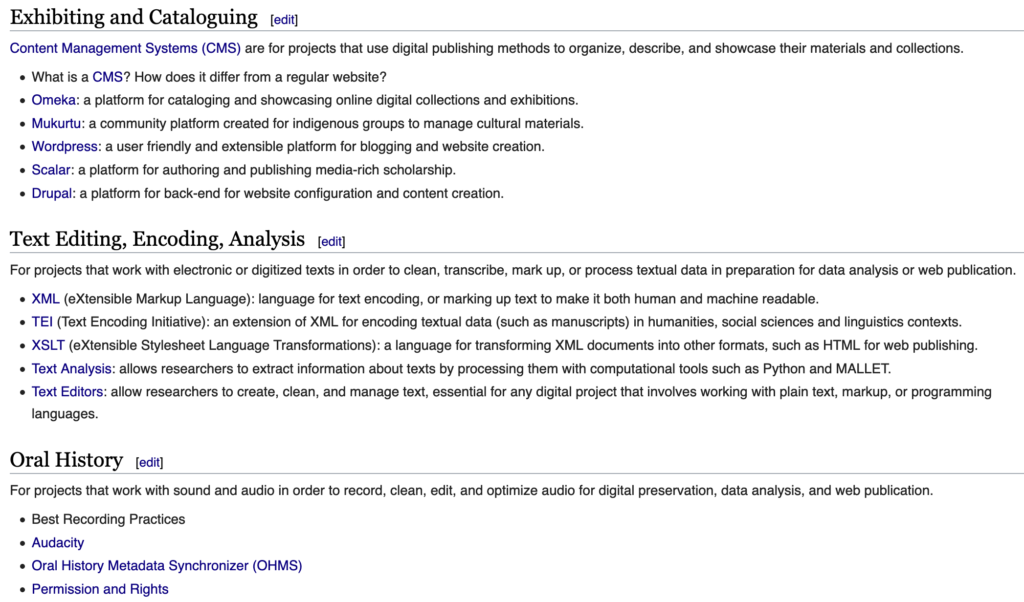The Digital Archive Research Collective (DARC), led by a group of Digital Fellows from the Graduate Center Digital Initiatives, recently launched the DARC Wiki, a resource guide to help scholars incorporate archival methods into their work. The resource guide, built using wiki software, offers a trove of information about tools, platforms, and methods for archival research. It also features projects created by GC students and faculty and a list of funding and institutional resources to help support archival research. At DARC, our idea is to concentrate the building’s expertise on working with text, audio, and physical artifacts into one shared and sustainable space.
The DARC Wiki is a starting place for people who want to pursue archival work. The wiki addresses archival approaches as diverse as catalogs, exhibitions, text encoding and analysis, web scraping, oral history, sound studies, and web archiving. We aim to demystify these archival methods, helping students and faculty to gain a basic grasp of what the practice of Digital Archiving entails and how to use open source tools to do their research. In what follows, I’m going to highlight some of the ways you might use the wiki.

First, our Methods and Tools section offers introductions to major tools and platforms. The landing page here directs researchers to explore different archival approaches, which lead to specific pages on each tool or platform. For example, the Exhibiting and Cataloguing page has a list of Content Management Systems, like Omeka and Drupal, which allow users to upload, manage, and display their content. The Oral History page lists resources for projects that work with sound and audio, guiding researchers through software and hardware that enables them to record and optimize audio, and explains open-source tools like Audacity. The Text Editing, Encoding, and Analysis section discusses how to choose a text editor and how to clean, transcribe, mark up, or process textual data with tools like XML in preparation for text analysis or web publication.
Additionally, the wiki highlights student projects on its Featured Projects page. Following Miriam Posner’s “How Did They Make That?” template, this page focuses on the tools and platforms used for each project, and offers instructions for those who would like to do similar work. For example, the Zine Union Catalog, developed by Jenna Freeman and Lauren Kehoe (MA in Digital Humanities), aggregates information about zines from various collections and libraries across the country. The wiki entry lays out the necessary tools for completing such a project (Collective Access for cataloguing software, and WordPress for web publishing) and how to get started. The links throughout this page lead to further resources that, we hope, will help inspire new projects.
Going beyond the technical, this wiki also offers financial and personal resources, pointing readers to funding opportunities inside and outside the GC, and a list of people and centers who are invested in archival projects within the building. This page showcases and centralizes the expertise that already exists at the Graduate Center.
Though our team is always growing the wiki from within, we encourage users to contribute by adding their work to our master list of GC archival projects. We define “Digital Archive” broadly to include any collection of cultural materials that uses technology to collect, curate, or publish its materials, and we welcome projects that are in progress or completed. So please, add your project to our list, or your expertise to one of our other pages! See our instructions for contributing to the wiki.
We hope to see you at one of DARC’s upcoming open meetings (the next one is on March 10). Please join the DARC commons group to stay updated.


